13 April 2025
If there’s one thing JRPGs (Japanese Role-Playing Games) do better than most, it's storytelling. These games have a knack for weaving intricate tales that go beyond your standard “save the world” narrative. They’re emotional rollercoasters, sometimes heartwarming, sometimes gut-wrenching, but almost always unforgettable. Whether it’s a tale of friendship, redemption, or the eternal battle between light and darkness, JRPG story arcs are designed to stick with you like that one catchy tune you just can’t get out of your head.
Let’s dive into some of the most impactful JRPG story arcs that leave a lasting impression long after the credits roll. And trust me, if you haven’t experienced these yet, you might want to add them to your gaming bucket list.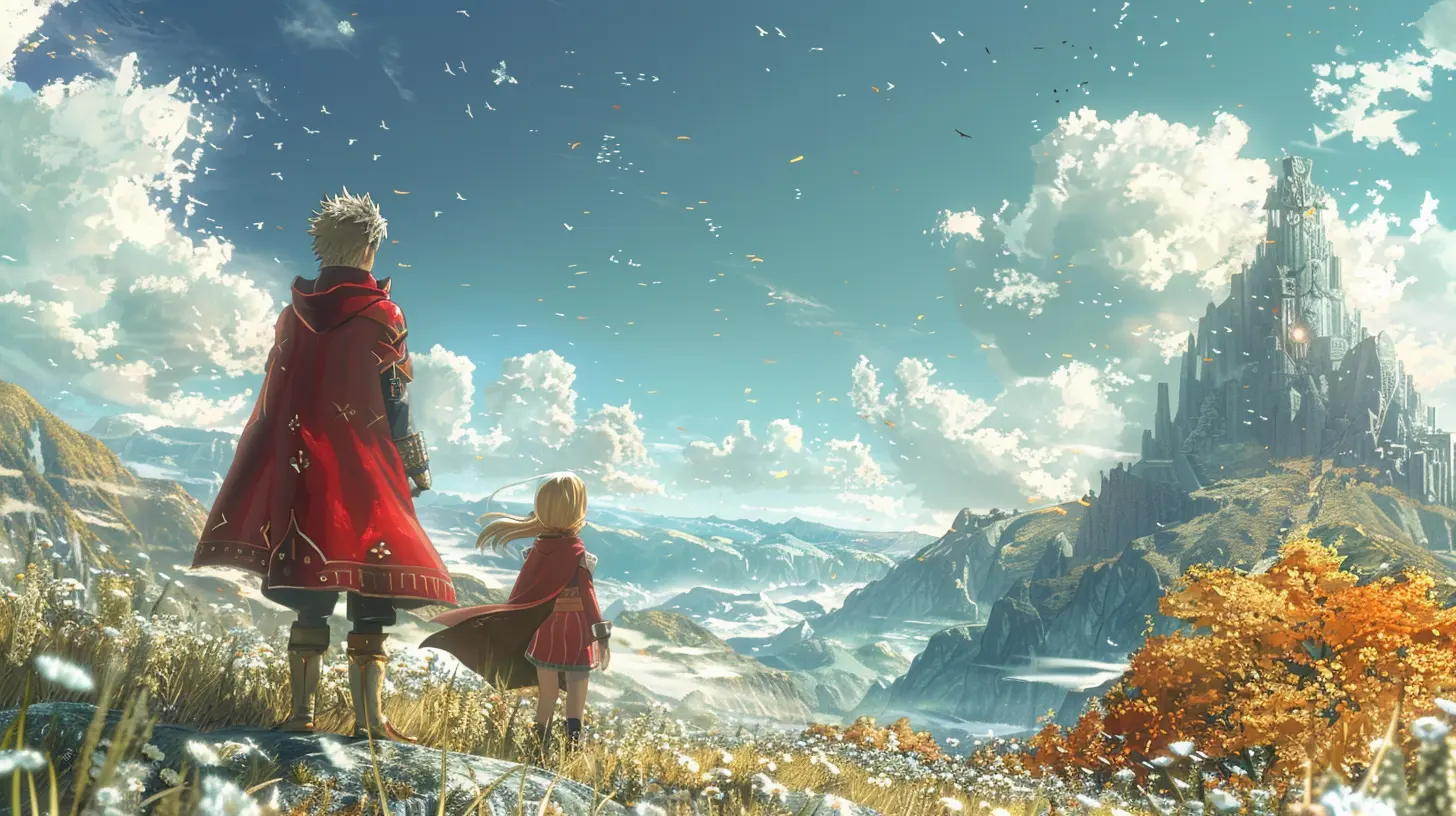
1. Final Fantasy VII – The Weight of Loss and Legacy
You knew this one was coming, right? Final Fantasy VII is practically synonymous with iconic JRPG storytelling. Cloud Strife’s journey starts as your typical merc-for-hire adventure but quickly snowballs into an epic about identity, environmentalism, and loss.Nothing prepares you for the game’s emotional gut-punch when Aerith meets her tragic fate. It’s one of those moments where the controller slips from your hands, and you just sit there, stunned. Her death isn’t just for shock value, though—it’s integral to the story. The game explores how the characters cope with loss and how Cloud shoulders the weight of responsibility, legacy, and redemption.
Even years later, when you hear the hauntingly beautiful “Aerith’s Theme,” you’ll find yourself transported back to those moments. For many, Final Fantasy VII is more than just a game; it’s an experience that lingers.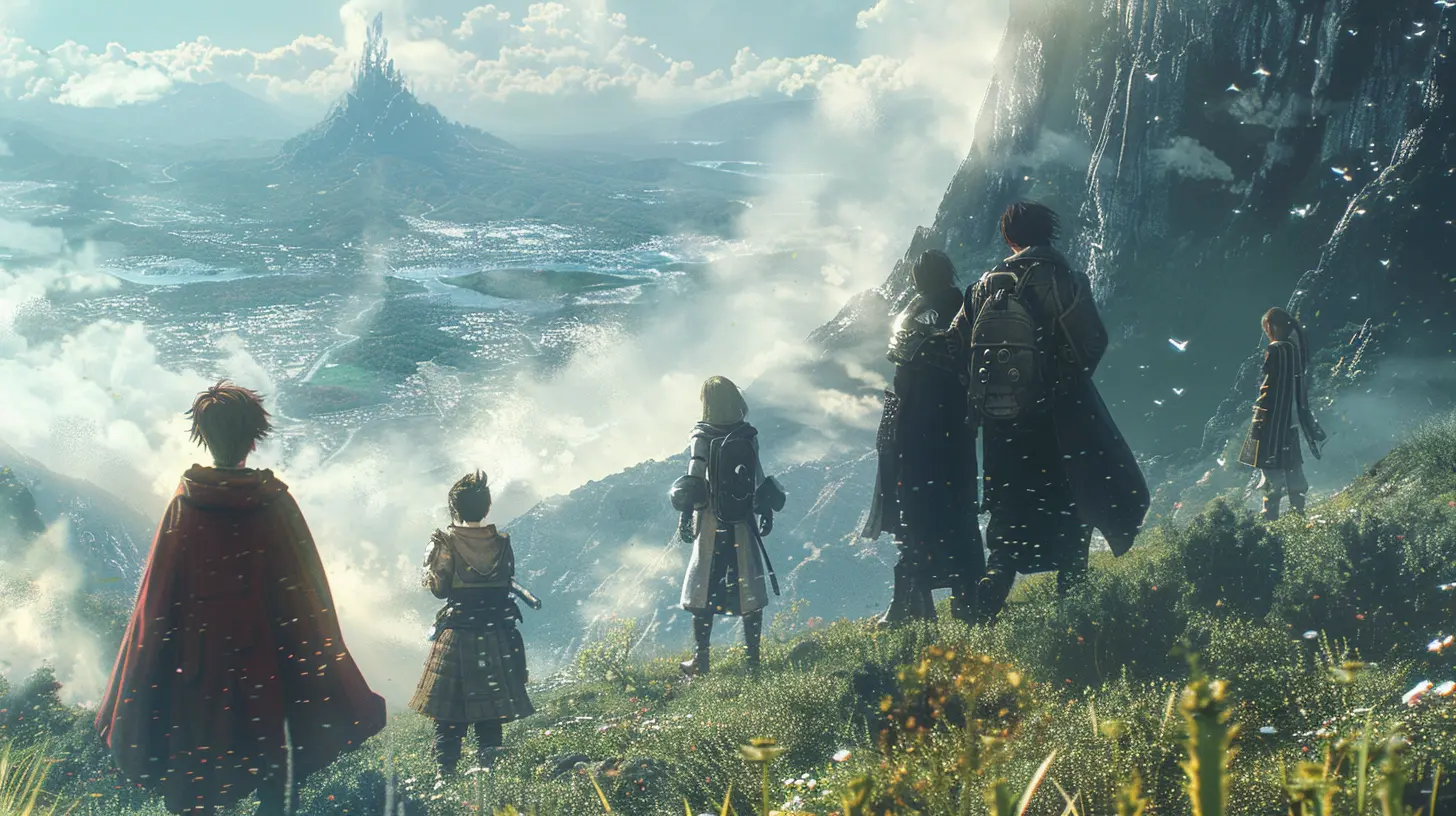
2. Persona 5 – Breaking Free of Society’s Shackles
Few JRPGs tackle modern societal issues as Persona 5 does. At its core, this game is a coming-of-age story wrapped in a stylish, rebellious package. You play as a group of teenagers who harness the power of their Personas to expose corruption in society and give people the courage to stand up for themselves.Each Palace (essentially, twisted inner worlds) in the game represents the darker side of human desires: greed, lust, pride—you name it. By taking down these distorted manifestations, the Phantom Thieves don’t just save the day; they inspire hope for a better future.
But it’s not all sunshine and roses. The game also delves into the struggles of the main cast—abuse, bullying, and societal rejection. By the end, you’re left reflecting on what it really means to fight for justice in a world that resists change. It’s one of those rare games where the story feels just as relevant today as it did at launch.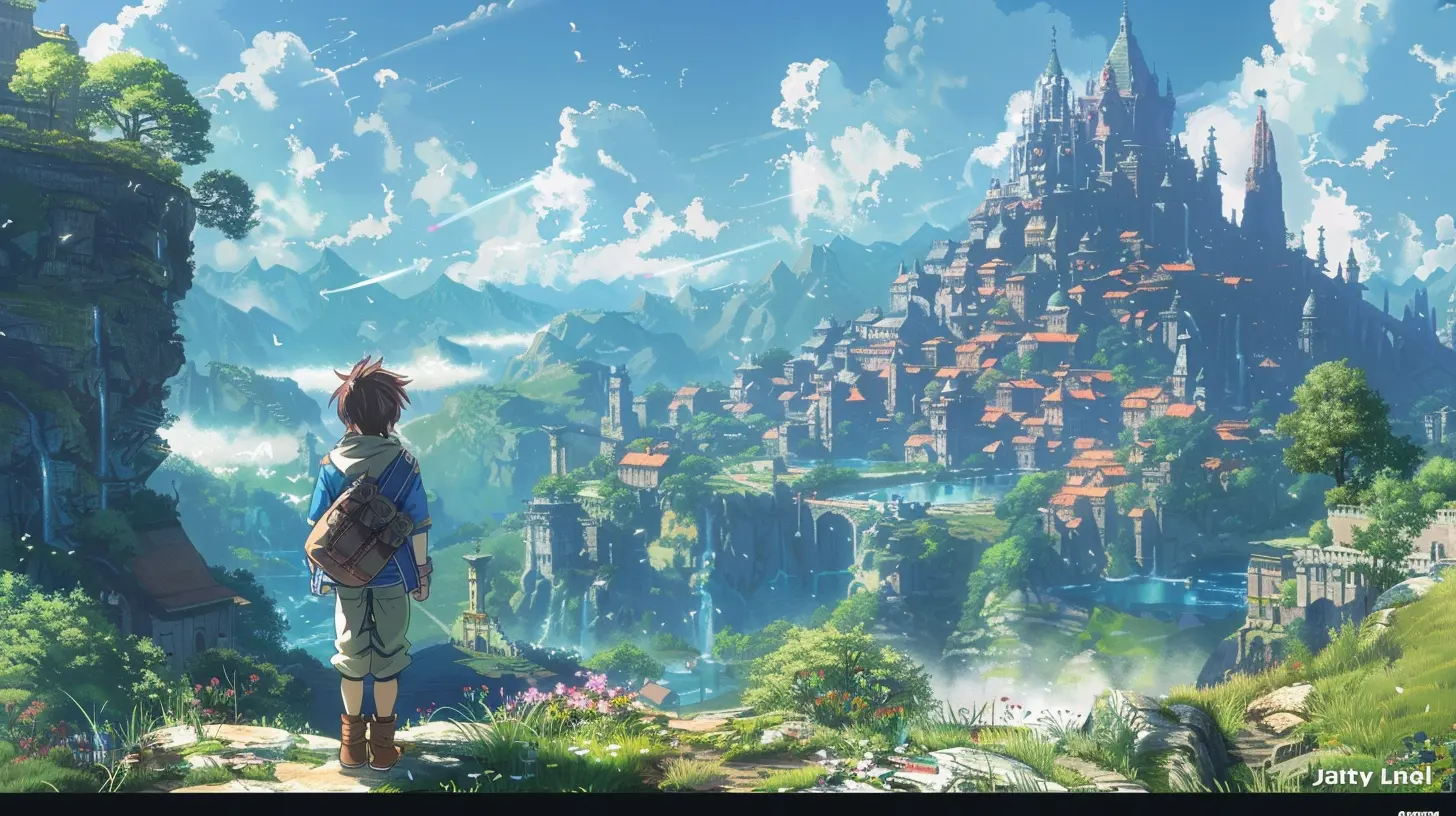
3. Chrono Trigger – The Ripple Effect of Choices
What if I told you an SNES game from 1995 could outshine some of today’s AAA storytelling? Chrono Trigger isn’t just a classic; it’s a masterpiece. One of the reasons its story arc sticks with players is its focus on time travel and the consequences of your actions.The game starts as a quirky adventure through different eras of time, but before long, you realize the weight of your choices. Do you save a beloved character at the cost of altering history? Can you fix a dystopian future riddled with despair?
What makes Chrono Trigger so unforgettable is its multiple endings. Depending on your decisions, you can experience a variety of outcomes, each one shedding light on different aspects of the story. It’s like peeling an onion—every layer adds depth.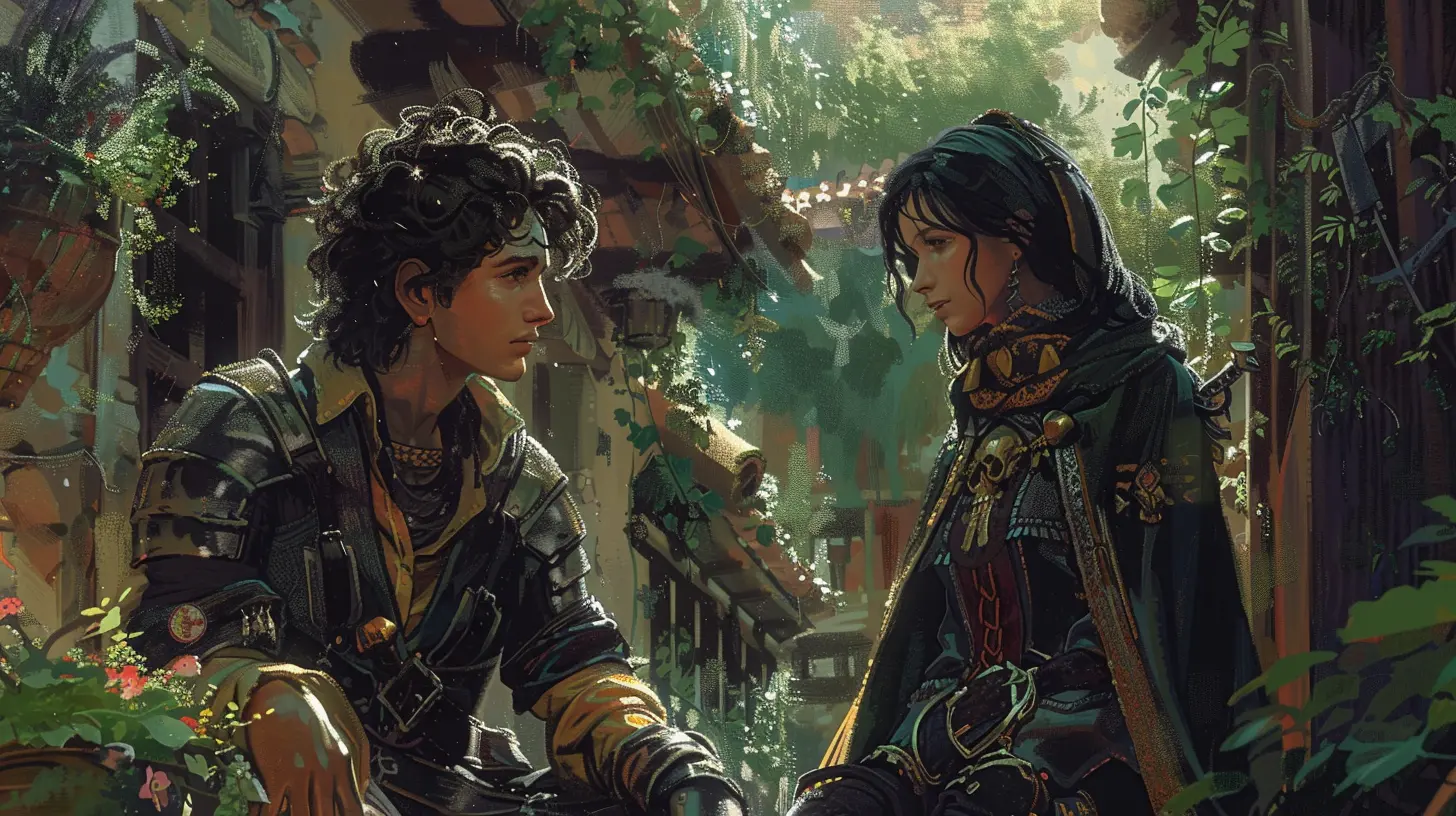
4. NieR: Automata – What It Means to Be Human
This isn’t your average JRPG. NieR: Automata takes storytelling to a whole new level by challenging your perception of humanity. You play as androids 2B, 9S, and A2, who are fighting a seemingly endless war against alien machines. Sounds straightforward, right? Oh, boy, buckle up.The narrative raises existential questions about identity, purpose, and the cycle of life and death. What happens when androids, beings created by humans, start wondering about their own existence? What does it mean to be human if humanity itself no longer exists?
With twists, jaw-dropping revelations, and one of the most emotionally resonant endings in gaming history, NieR: Automata will leave you questioning everything you thought you knew. Also, the game forces you to play through multiple perspectives, and each playthrough layers on emotions like a sad symphony building to a crescendo.
5. Tales of Symphonia – The Price of Sacrifice
If you’re a fan of stories that tackle moral dilemmas, Tales of Symphonia is a must-play. The game starts as a straightforward “chosen one” tale—Lloyd Irving and his friends set out to save the world by helping the Chosen, Colette, fulfill her destiny.But here’s the kicker: saving the world comes at an unthinkable cost. Colette’s journey is one of gradual self-sacrifice, and as the story unfolds, Lloyd and his companions face choices that challenge their beliefs. Is one life worth exchanging for the greater good? What if the entire premise of your quest is built on a lie?
By the time you finish Tales of Symphonia, you’re left with a story that examines faith, free will, and the weight of responsibility. It’s a classic for a reason.
6. Xenogears – The Depth of Human Psyche
Xenogears is not a lighthearted affair—it’s a deep, philosophical dive into the human psyche, religion, and the nature of existence. While the game’s second disc has been criticized for its rushed pacing, the overarching story is nothing short of brilliant.The main protagonist, Fei, grapples with amnesia, trauma, and his connection to a mysterious entity called "Id." The story explores themes of reincarnation, the cyclical nature of history, and the eternal struggle between good and evil.
If you’re the type of person who loves peeling back layers of meaning and analyzing symbolism, Xenogears delivers in spades. Fair warning, though: It’s heavy stuff. But if you stick with it, the narrative will burrow its way into your mind and heart.
7. Dragon Quest XI – The Power of Hope and Perseverance
Sometimes, you just need a story that’s equal parts comforting and inspiring. Dragon Quest XI delivers just that. While it might appear to be a traditional JRPG on the surface, its storytelling is anything but ordinary.You play as the Luminary, a hero destined to save the world from darkness. But what makes this game stand out is its charming cast of characters and its willingness to explore themes of hope, loss, and resilience. There’s even a major narrative twist partway through the game that flips everything on its head.
By the time you reach the end, you’re left with a heartwarming tale that reminds you of the importance of friendship and the indomitable human spirit. Plus, the game’s gorgeous art style and stellar soundtrack amplify the emotional weight of the story.
8. The Legend of Heroes: Trails in the Sky – A Tale of Political Intrigue
Unlike many JRPGs that focus on saving the world, The Legend of Heroes: Trails in the Sky opts for a more grounded, character-driven approach. Estelle and Joshua’s journey initially seems like a small-scale adventure, but the story slowly builds into a gripping tale of political intrigue and personal growth.The strength of this series lies in its world-building and character development. Every NPC has a story, and the world feels alive in a way few games can replicate. Watching Estelle grow from an impulsive, naive girl into a strong, capable woman makes the journey incredibly satisfying.
By the time the credits roll, you’re not just saying goodbye to a story—you’re bidding farewell to a group of friends who’ve been by your side for dozens of hours.
Final Thoughts
JRPGs have a way of making you feel. Whether it’s through their complex characters, morally gray narratives, or emotionally charged moments, these stories tend to stick around, lurking in the back of your mind long after the final boss has fallen. They remind us why we love gaming in the first place—they’re not just about defeating enemies; they’re about connection, empathy, and the shared human experience.Which of these story arcs is your favorite? Or maybe there’s another one that still haunts you to this day? Let me know—I'd love to hear your thoughts!

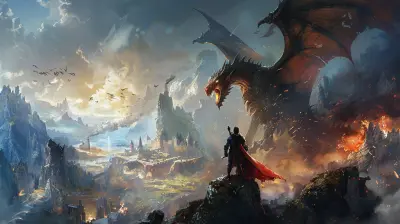


Tamsin Black
This article brilliantly highlights the emotional depth of JRPGs, showcasing how their intricate narratives linger in our minds long after completion. The compelling character development and unexpected twists create memorable experiences that resonate with players, reinforcing the genre's unique storytelling power. Well done!
April 16, 2025 at 5:14 AM